第40章 VII (3)
"Dear Cousin Hepzibah, pray don't look so!" said Phoebe, trembling;for her cousin's emotion, and this mysteriously reluctant step, made her feel as if a ghost were coming into the room. "You really frighten me! Is something awful going to happen?""Hush!" whispered Hepzibah. "Be cheerful! whatever may happen, be nothing but cheerful!"The final pause at the threshold proved so long, that Hepzibah, unable to endure the suspense, rushed forward, threw open the door, and led in the stranger by the hand. At the first glance, Phoebe saw an elderly personage, in an old-fashioned dressing-gown of faded damask, and wearing his gray or almost white hair of an unusual length. It quite overshadowed his forehead, except when he thrust it back, and stared vaguely about the room. After a very brief inspection of his face, it was easy to conceive that his footstep must necessarily be such an one as that which, slowly and with as indefinite an aim as a child's first journey across a floor, had just brought him hitherward. Yet there were no tokens that his physical strength might not have sufficed for a free and determined gait. It was the spirit of the man that could not walk. The expression of his countenance--while, notwithstanding it had the light of reason in it --seemed to waver, and glimmer, and nearly to die away, and feebly to recover itself again. It was like a flame which we see twinkling among half-extinguished embers; we gaze at it more intently than if it were a positive blaze, gushing vividly upward,--more intently, but with a certain impatience, as if it ought either to kindle itself into satisfactory splendor, or be at once extinguished.
For an instant after entering the room, the guest stood still, retaining Hepzibah's hand instinctively, as a child does that of the grown person who guides it. He saw Phoebe, however, and caught an illumination from her youthful and pleasant aspect, which, indeed, threw a cheerfulness about the parlor, like the circle of reflected brilliancy around the glass vase of flowers that was standing in the sunshine. He made a salutation, or, to speak nearer the truth, an ill-defined, abortive attempt at curtsy. Imperfect as it was, however, it conveyed an idea, or, at least, gave a hint, of indescribable grace, such as no practised art of external manners could have attained. It was too slight to seize upon at the instant; yet, as recollected afterwards, seemed to transfigure the whole man.
"Dear Clifford," said Hepzibah, in the tone with which one soothes a wayward infant, "this is our cousin Phoebe,--little Phoebe Pyncheon,--Arthur's only child, you know. She has come from the country to stay with us awhile; for our old house has grown to be very lonely now.""Phoebe--Phoebe Pyncheon?--Phoebe?" repeated the guest, with a strange, sluggish, ill-defined utterance. "Arthur's child! Ah, I forget! No matter. She is very welcome!""Come, dear Clifford, take this chair," said Hepzibah, leading him to his place. "Pray, Phoebe, lower the curtain a very little more.
Now let us begin breakfast."
The guest seated himself in the place assigned him, and looked strangely around. He was evidently trying to grapple with the present scene, and bring it home to his mind with a more satisfactory distinctness. He desired to be certain, at least, that he was here, in the low-studded, cross-beamed, oaken-panelled parlor, and not in some other spot, which had stereotyped itself into his senses. But the effort was too great to be sustained with more than a fragmentary success. Continually, as we may express it, he faded away out of his place; or, in other words, his mind and consciousness took their departure, leaving his wasted, gray, and melancholy figure--a substantial emptiness, a material ghost--to occupy his seat at table. Again, after a blank moment, there would be a flickering taper-gleam in his eyeballs. It betokened that his spiritual part had returned, and was doing its best to kindle the heart's household fire, and light up intellectual lamps in the dark and ruinous mansion, where it was doomed to be a forlorn inhabitant.
At one of these moments of less torpid, yet still imperfect animation, Phoebe became convinced of what she had at first rejected as too extravagant and startling an idea. She saw that the person before her must have been the original of the beautiful miniature in her cousin Hepzibah's possession. Indeed, with a feminine eye for costume, she had at once identified the damask dressing-gown, which enveloped him, as the same in figure, material, and fashion, with that so elaborately represented in the picture.
This old, faded garment, with all its pristine brilliancy extinct, seemed, in some indescribable way, to translate the wearer's untold misfortune, and make it perceptible to the beholder's eye. It was the better to be discerned, by this exterior type, how worn and old were the soul's more immediate garments; that form and countenance, the beauty and grace of which had almost transcended the skill of the most exquisite of artists. It could the more adequately be known that the soul of the man must have suffered some miserable wrong, from its earthly experience. There he seemed to sit, with a dim veil of decay and ruin betwixt him and the world, but through which, at flitting intervals, might be caught the same expression, so refined, so softly imaginative, which Malbone--venturing a happy touch, with suspended breath --had imparted to the miniature! There had been something so innately characteristic in this look, that all the dusky years, and the burden of unfit calamity which had fallen upon him, did not suffice utterly to destroy it.
Hepzibah had now poured out a cup of deliciously fragrant coffee, and presented it to her guest. As his eyes met hers, he seemed bewildered and disquieted.